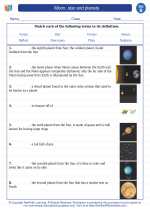Carbonation
Carbonation is the process of dissolving carbon dioxide in water. This process can occur naturally, such as when carbon dioxide from the atmosphere dissolves in rainwater, or it can be artificially induced, as is the case with carbonated beverages like soda and sparkling water.
How does carbonation work?
When carbon dioxide (CO2) is dissolved in water, it forms carbonic acid (H2CO3). This reaction can be represented by the following equation:
CO2 + H2O → H2CO3
The carbonic acid then dissociates into bicarbonate ions (HCO3-) and hydrogen ions (H+), which lowers the pH of the water and gives it a slightly acidic taste.
Natural carbonation
Natural carbonation occurs when carbon dioxide from the atmosphere dissolves in bodies of water, such as rivers, lakes, and oceans. This process contributes to the acidity of these bodies of water and plays a role in the carbon cycle.
Artificial carbonation
Artificial carbonation is the process of adding carbon dioxide to water under pressure to produce carbonated beverages. This is commonly done in the production of soda, seltzer, and sparkling water. The dissolved carbon dioxide gives these beverages their characteristic fizz and tangy flavor.
Study Guide
- What is carbonation?
- Describe the process of carbonation.
- How does carbon dioxide dissolve in water?
- What is the role of carbonic acid in carbonation?
- Explain the difference between natural and artificial carbonation.
- Provide examples of naturally carbonated substances.
- What are some common artificially carbonated beverages?
◂Science Worksheets and Study Guides Second Grade. Moon, star and planets

 Activity Lesson
Activity Lesson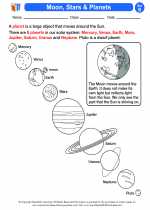
 Worksheet/Answer key
Worksheet/Answer key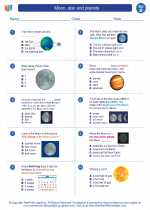
 Worksheet/Answer key
Worksheet/Answer key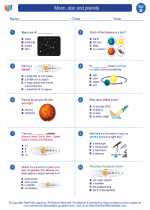
 Worksheet/Answer key
Worksheet/Answer key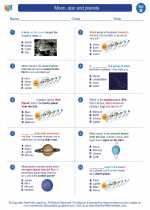
 Vocabulary/Answer key
Vocabulary/Answer key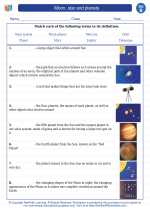
 Vocabulary/Answer key
Vocabulary/Answer key